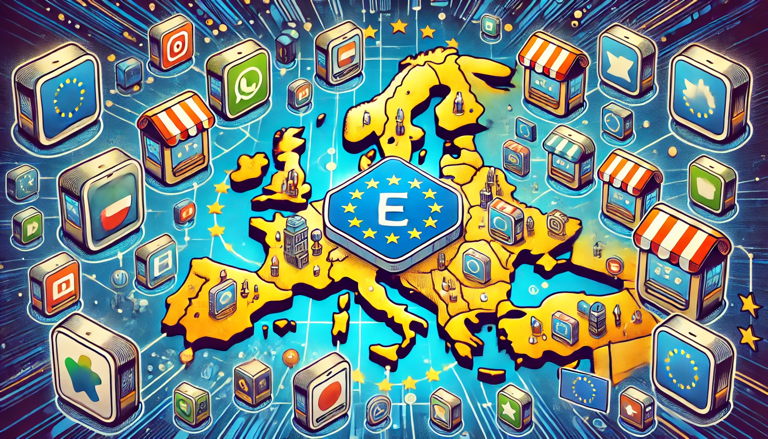As the European Union enforces the Digital Markets Act (DMA), Apple is facing a significant challenge. The opening of third-party iOS app stores could potentially shake its dominance in the mobile app market and bring about profound changes across the industry.

This new regulation means that users will no longer be limited to Apple's official App Store. They will have more options to explore and download applications, leading to increased competition among app stores. Developers, in turn, will benefit from more flexible publishing channels and lower commission fees. However, this newfound freedom comes with potential security risks, as third-party app stores may not match Apple's stringent review processes, requiring users to be more vigilant.
For developers, this shift presents a massive opportunity. They will no longer be confined by Apple’s strict regulations and can release their apps across multiple platforms, reducing operating costs and boosting their competitiveness. However, with a more open market, competition will intensify, necessitating greater investment in marketing and support.
Apple faces unprecedented challenges. The App Store has long been a crucial revenue source, and the introduction of third-party app stores will undoubtedly impact its commission earnings. Additionally, Apple's control over the iOS ecosystem will be weakened, and how the company responds to this shift will be critical. To maintain its market share, Apple may need to enhance the quality of its App Store services, lower commissions, or even adopt more aggressive market strategies.
Meanwhile, competitors like Google may seize this opportunity to expand their influence on the iOS platform, further intensifying the rivalry with Apple. The effects of this policy may not be confined to Europe, as other regulatory bodies worldwide could follow suit, driving further changes in the global mobile app market.
In summary, the opening of third-party iOS app stores in the EU will have wide-ranging and profound implications for the entire mobile app ecosystem. Consumers will benefit from increased choice and potentially lower prices but must also navigate new security challenges. Developers will gain more freedom and market opportunities but will also face more intense competition. For Apple, this presents a significant challenge that could erode its market dominance and revenue streams. Ultimately, this shift could trigger a global wave of innovation and competition in the mobile app industry.